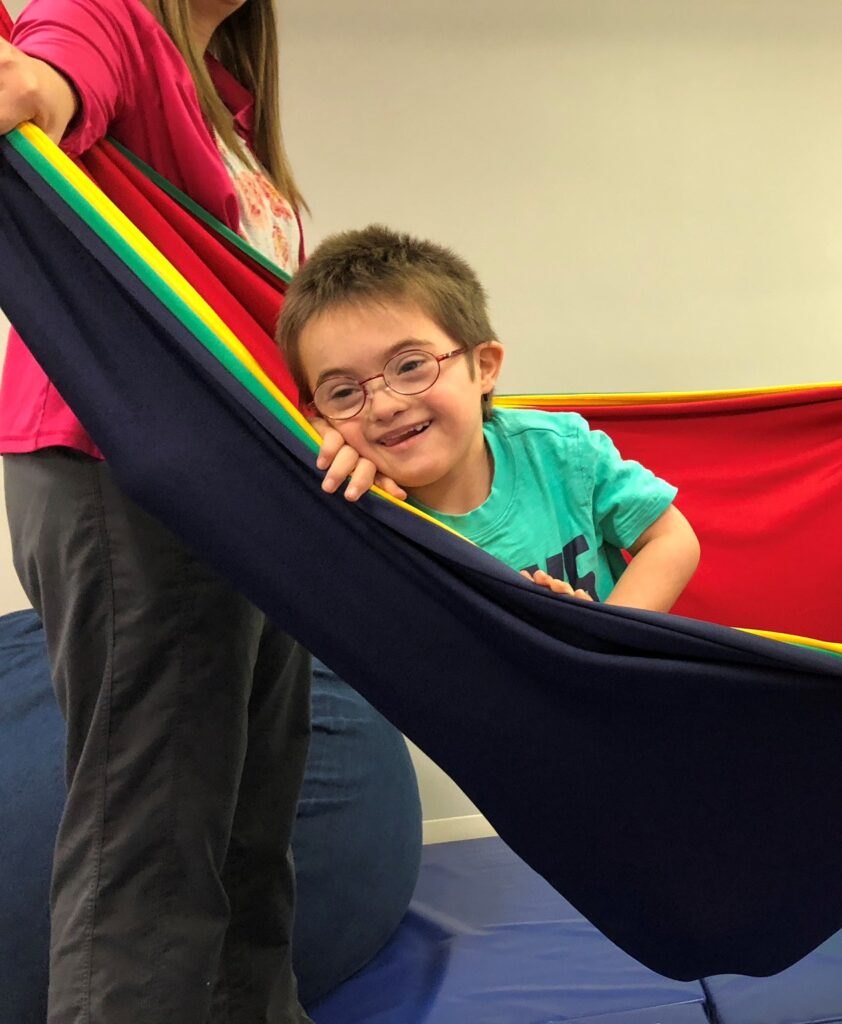
What is Down Syndrome?
According to the National Down Syndrome Society (NDSS) (http://www.ndss.org/) Down Syndrome occurs when an individual has a full or partial extra copy of chromosome 21. This additional genetic material alters the course of development and causes the characteristics associated with Down Syndrome. Children with Down Syndrome tend to exhibit hypotonia (low muscle tone), joint ligament laxity (looseness of ligaments that increase flexibility in the joints), and decreased strength which can impact development.
How can Occupational Therapy help my child with Down Syndrome?
Occupational therapists at MPPT will utilize skilled treatment techniques to help your child achieve developmental milestones, gain independence in age-appropriate skills, and provide the best adaptive strategies for success. Our Occupational therapists work as part of your child’s interdisciplinary team to develop an individualized plan of care to best facilitate development in:
- Activities of Daily Living (ADLs) and Instrumental Activities of Daily Living(iADLs)
- MPPT OTs are specialized in identifying which tasks are challenging and can break down tasks (such as dressing, grooming, cooking, laundry, shopping) into simplified steps so the child can achieve greater success, as well as suggest the best adaptations that are appropriate to help the child be more independent.
- Due to hypotonia and weakness of the muscles of the cheeks, tongue and lips, feeding can be difficult for children with Down Syndrome. MPPT OTs can provide oral sensory input for improved oral awareness and utilize oral motor strengthening techniques for improved self-feeding. Additionally, OTs can offer tips for proper positioning for feeding and appropriate adaptive equipment (such as specific utensils, cups, plates).
- Fine Motor Skills
- MPPT OTs facilitate the development of fine motor skills that are necessary to complete tasks such as handwriting and buttoning clothes in the later stages of life. Children with Down Syndrome may face more challenges learning fine motor skills because of low muscle tone, decreased strength and joint ligament laxity. Children develop fine motor strength and skills through play via climbing, crawling, engaging in small manipulative toys they can open/close, pick up and release, stack and build, manipulating knobs and buttons, coloring, cutting, and writing to name a few.
- Sensory Integration
- Children with Down Syndrome can have difficulty integrating sensory input received from their environment, which can impact balance, coordination, and self-regulation. Our OTs are skilled in sensory integration techniques that are specific to each child that can be completed in therapy sessions, during home exercise programs as well as in the classroom to help improve their performance in ADL, play, and school-based tasks.
